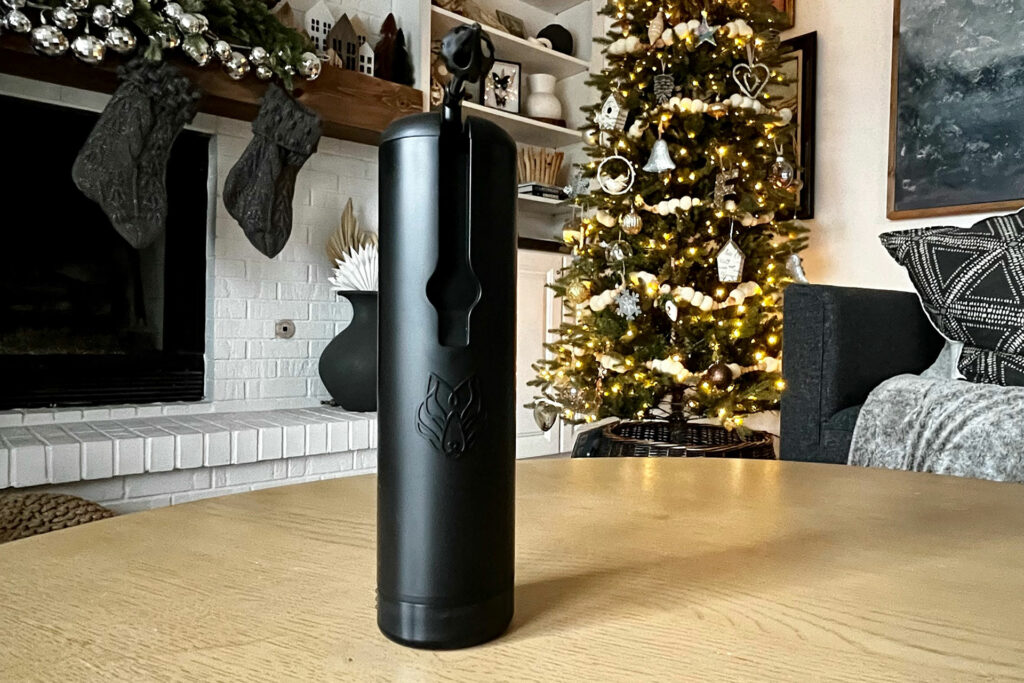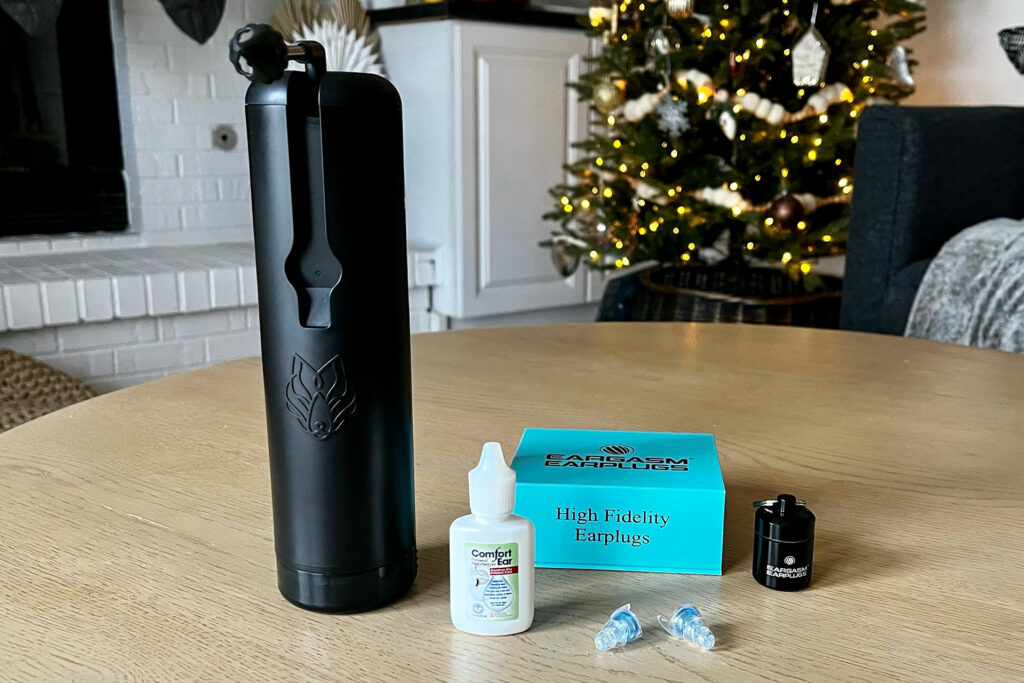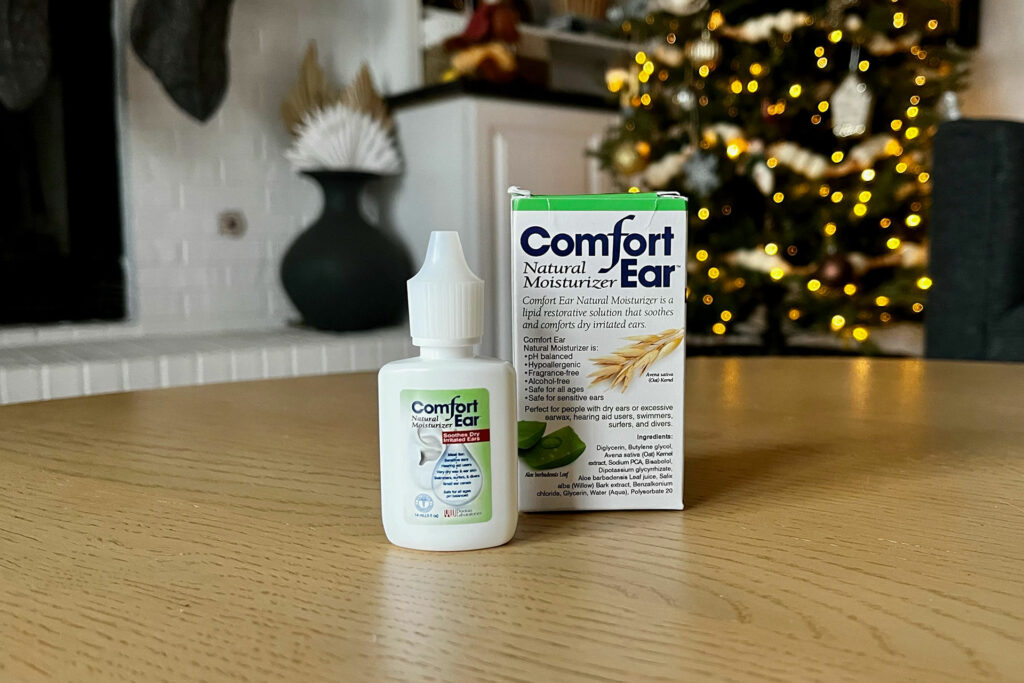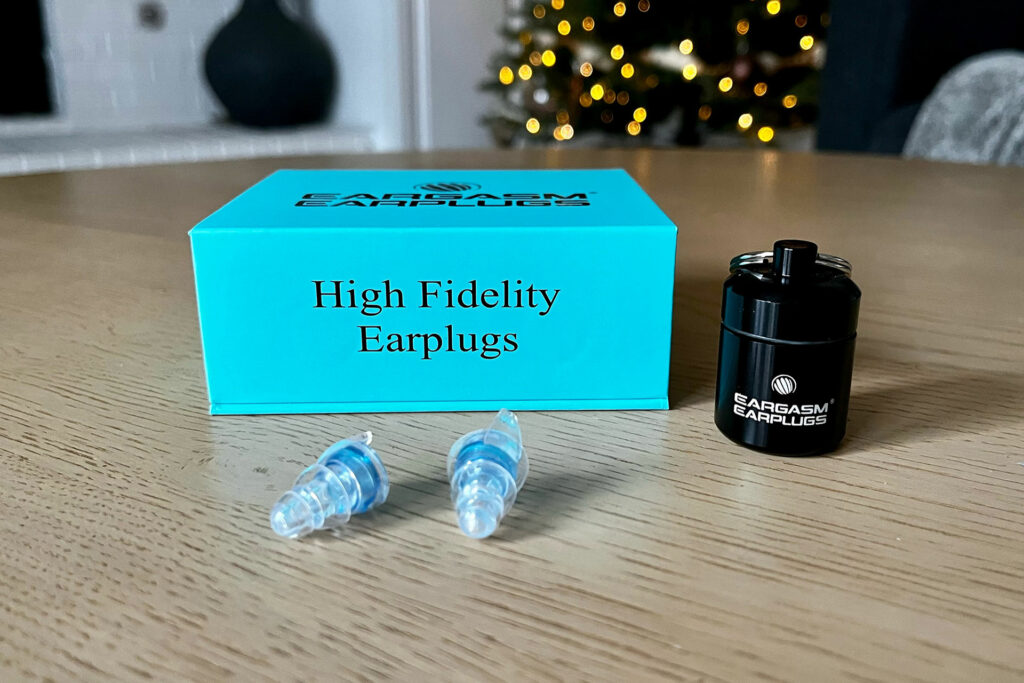I’ve said it before and I will say it again – the single most important component in any audiophile system are your ears. Surprisingly, this is an often-overlooked topic of conversation among audiophiles, who are (given their age and male-dominated demographic profile) at highest risk of hearing loss (learn more here) and long-term damage. As a neurosurgeon must protect his hands to remain effective in the operating room, it is imperative that audiophiles also take care of their ears if they hope to meaningfully engage in the hobby over time.
Let’s explore three ear health products that may have a positive impact on your ears, and that promise to keep you in the audiophile game for as long as possible. Please be advised, however, that the following reviews are simply accounts of my own experience, and not endorsements of any particular product. I personally purchased each product for purposes of review, was not financially compensated by any related brand, and all words are my own as a medical professional by trade. Use of any of these products comes with the warning that results may vary, and that you do so at your own risk.

Can the Wush Ear Cleaner ($70) Improve an Audiophile’s Hearing?
Ask anybody with a background in hearing and ear health and they will tell you that Q-Tips are not your friend when it comes to cleaning your ears. While the practice of removing cerumen (earwax) from the external auditory meatus (ear canal) via Q-Tips is common, it is actually quite dangerous if done incorrectly, and can lead to impaction, infection, and even permanent ear damage or injury. Others will tell you and I will do – please do not clean your ears with a Q-Tip. The best option, if you make a lot of earwax naturally, is to have an ear, nose and throat doctor professionally clean your ears, as it doesn’t take very long and will get you the best possible results. With that said, there are other, less time-consuming options on the market, so let’s explore…
The preferred method of daily cerumen/earwax management is irrigation, but historically there has been very limited product selection for the everyday consumer to realistically perform this practice at home. Additionally, this method is generally more time-consuming and messy, so the borderline-barbaric practice of shoving a cotton-covered plastic implement in your ear and scraping the sensitive tissue just millimeters away from the tympanic membrane has remained commonplace.
In 2022, Blackwolf, a skincare and wellness company geared towards men, debuted the Wush, a personal “ear-igation” device with a modern spin and sleek aesthetic. At $69, the Wush is physically larger than you might expect, at about nine inches tall and 2.25 inches in diameter. A few easy size comparisons would be the Sony SRS-XB23 Bluetooth Speaker or an 18-ounce YETI Rambler water bottle.
Operating the Wush is straightforward. Fill the reservoir with warm tap water (never use cold) and install the silicone tip of your choice. Gently press the tip into the ear canal and (as the product name implies) “wush” away the potential build-up in your ear. The nozzle sprays a thin, powerful, tri-directional stream of warm water that infiltrates the areas around and behind any built-up wax in the posterior ear canal.
I tried the Wush every evening for a week. My initial impressions were that it felt a little weird, like I was violating my ear holes. I actually felt a little dizzy after the first try, and questioned whether I should continue the experiment. After adjusting the spray strength to the lowest setting, and backing the silicone tip slightly out of the anterior ear canal, I was able to achieve a more comfortable irrigation experience for the next few tests.
I was expecting gnarly chunks of wax to fall out all over the sink; my wife was eagerly awaiting this spectacle as well. To our collective disappointment (and surprise), my normally waxy inner ears produced only a tiny amount of cerumen and some off-colored water. I guess this meant my ears were cleaner than I had thought.
Subjectively, after about three days, the overall comfort level of my ears improved. My left ear, which tends to get dry and itchy (more on that later), especially during long Midwest winters, felt some minor relief. My hearing was the same during normal day-to-day operations, but there was a slightly tangible impact with music and multimedia listening.

Music Listening and the Wush: Before and After
This is far from a proper, controlled study, and there are several factors that may have impacted minor changes in my hearing, such as temperature, illness, and household humidity. Generally speaking, though, I kept the pre-and post-Wush listening conditions as consistent as possible in a real-life context.
The Wush definitely helped my ears achieve a new sense of homeostasis, compared to my normal cleaning methods (rinsing them in the shower, and using a Q-Tip to clean the outer edge), and my overall subjective listening quality improved slightly. The most notable impact was with headphones and in-ear monitors (IEMs) and classical guitar. My case study consisted of a pre-Wush and post-Wush full listening session of The Artistry of Christopher Parkening by Christopher Parkening on my Apple AirPods Pro 2s. High frequencies sparkled a just a bit more than usual, and there was a mild but noticeable increase in crispness in some of the acoustic fingerpicking after my five-day Wush trial.
You could make the case that these results may be completely unrelated to the Wush, but I would give it a personal thumbs up as an alternative to Q-Tips. As a medical professional, anything that produces good results and reduces risk of personal injury is a winner in my book.

Can ComfortEar Ear Drops by Westone ($17 per bottle) Help Audiophiles?
Exactly one week after the conclusion of my Wush case experiment, I attempted another simple case study of pre- and post-treatment listening with ComfortEar Natural Moisturizing Drops by Westone. These over-the-counter, natural drops contain ear-friendly ingredients such as aloe, oat and bark extract, as well as glycerin, to name a few. In other words, these drops are like essential oils for your ears.
As a Speech-Language Pathologist who often educates patients on hearing and vocal health, I have recommended over-the-counter ear drops in the past, mainly for purposes of maintaining ear moisture levels and improving tolerance of all-day hearing aid placement. Many of my older patients with hearing loss can only handle wearing hearing aids for short periods of time, and therefore remove them, lose them, or hide them in a denture cup, never to be found again. This is my reality, thus I am tuned in to real-world solutions that can make everybody’s life better, and in this case, I mean audiophiles, too.
Personally, my left ear tends to be drier than the right, and can become quite itchy and uncomfortable, especially this time of year, which reduces my ability to wear earbuds and IEMs, such as my Apple AirPods Pro 2s for longer than an hour or so.
I attempted a late-night Dune viewing on my iPad earlier this month, and had to remove the left AirPods Pro halfway through due to significant discomfort; my very own gom jabbar, but for the ear. Needless to say, I failed the test, and had to watch the rest of the film with only one earbud, which was far from ideal, and an insult to Hans Zimmer himself.
After one application of the Comfort Ear drops before bed (a few drops into the ear, tilt the head, and voila), I woke up with significant improvement in comfort in the left ear. The itchiness was all but eradicated, and dryness was significantly improved. The drops did leave a slightly oily residue, but this was to be expected. That next evening, I listened to the 45-minute post-rock album End by Explosions in the Sky, and re-watched Dune. There was no discernible difference in quality, but over the course of three hours of earbud placement, I felt little to no discomfort. I did notice some residue on the silicon tips of my AirPods Pro 2s, which I would assume is not ideal for charging and storage, so I was sure to wipe them clean after use and let them dry for a few minutes before placing them back in the case.
Overall, I was very surprised and satisfied with this product, and it solved a listening ear-oriented endurance problem that I had neglected for a few years. As an audiophile who experiences mild ear discomfort, this is a pretty risk-free gamble that may solve a common problem with headphone and IEM users such as myself.

Can Eargasm High Fidelity Ear Plugs ($40) Protect an Audiophile’s Hearing?
As a speech and hearing professional on a mission to educate the audiophile community on the importance of hearing protection, I felt it apt to include a set of high-end ear plugs that still allow the listener to enjoy music at high volumes. The Eargasm Earplugs fit the bill and, at around $40, seemed like a good investment in my journey to preserve my hearing for the long haul.
The earplugs came in a handsome hinged case and included two shell sizes to maximize comfort. My initial impressions were that these plugs are definitely made of higher-quality, softer silicone compared to throwaway earplugs I have purchased in the past. They fit snugly, but still allowed my normal-sized ear canals to breathe.
Once my wife and kids left the house, I cranked my Monoprice M2100X paired with RBH 61-SF/R speakers (read the review) to the highest possible volume without damaging my equipment.
With the Eargasm High Fidelity Earplugs placed firmly in my ear canals, I cycled through Dillinger Escape Plan’s discography, fully intending on pushing the earplugs to their limits. The Eargasm earbuds did an excellent job of protecting my hearing, as their claimed 21 dB of noise reduction was evident, while still allowing audible and enjoyable sound to come through. I could easily envision how these earplugs would allow a concertgoer to enjoy the performance without completely sacrificing the sonic experience.
Whether you are looking for a way to protect and preserve your hearing, improve the overall ecosystem of your tiny-but-mighty ear canals, or reduce itching and discomfort for longer, more comfortable listening sessions, there are options.
These small changes may lead to significant improvement in ear health and listening habits, which in turn, may allow you to outlast the statistics. Go forth and enjoy music, but for the love of all things audiophile, take care of your ears, people.




It’s refreshing to read an article based on self-care for the listener.
Maybe you could speak to the health of structures & tissues that work in conjunction with our ears, e.g., sinus cavities, eustachian tubes and neck muscles–sternocleidomastoid and scalenes . . . ?
Other self-care approaches could include focusing techniques that could lead to learning different types of meditation.
And separate from prescription meds (a category unto itself), there is the subject of non-prescription drugs and alcohol, and their effect upon our hearing–a potentially sensitive matter for some.
There are many equipment reviews from well known, “seasoned” reviewers who often make note of an alcoholic beverage as part of their listening session.
I have no issue with those who choose to drink alcohol, however, when I read that they “drink and listen” they disqualify themselves as optimally capable to provide a clear-headed review, no matter the claim to the “relaxation” provided by the beverage.
Thank you, again, for speaking to the listener as the primary vehicle for making sense of what we hear, for emphasizing optimal health and maintenance of “our vehicle” for long term enjoyment of the cool toys that bring music into our life.
Your claim of ‘seasoned’ reviewers that have an alcoholic drink disqualifying themselves is utterly laughable. It disqualifies your input moving forward.